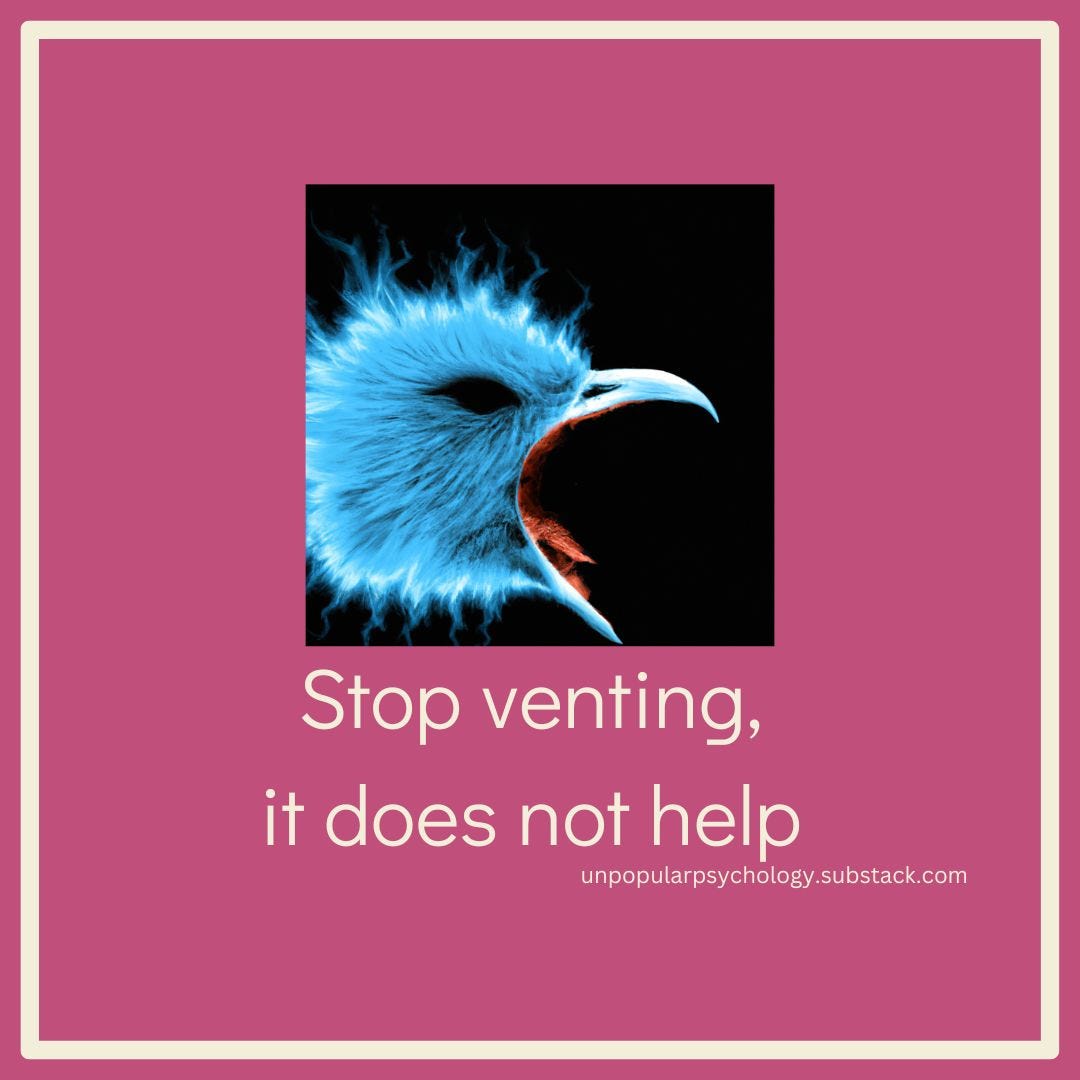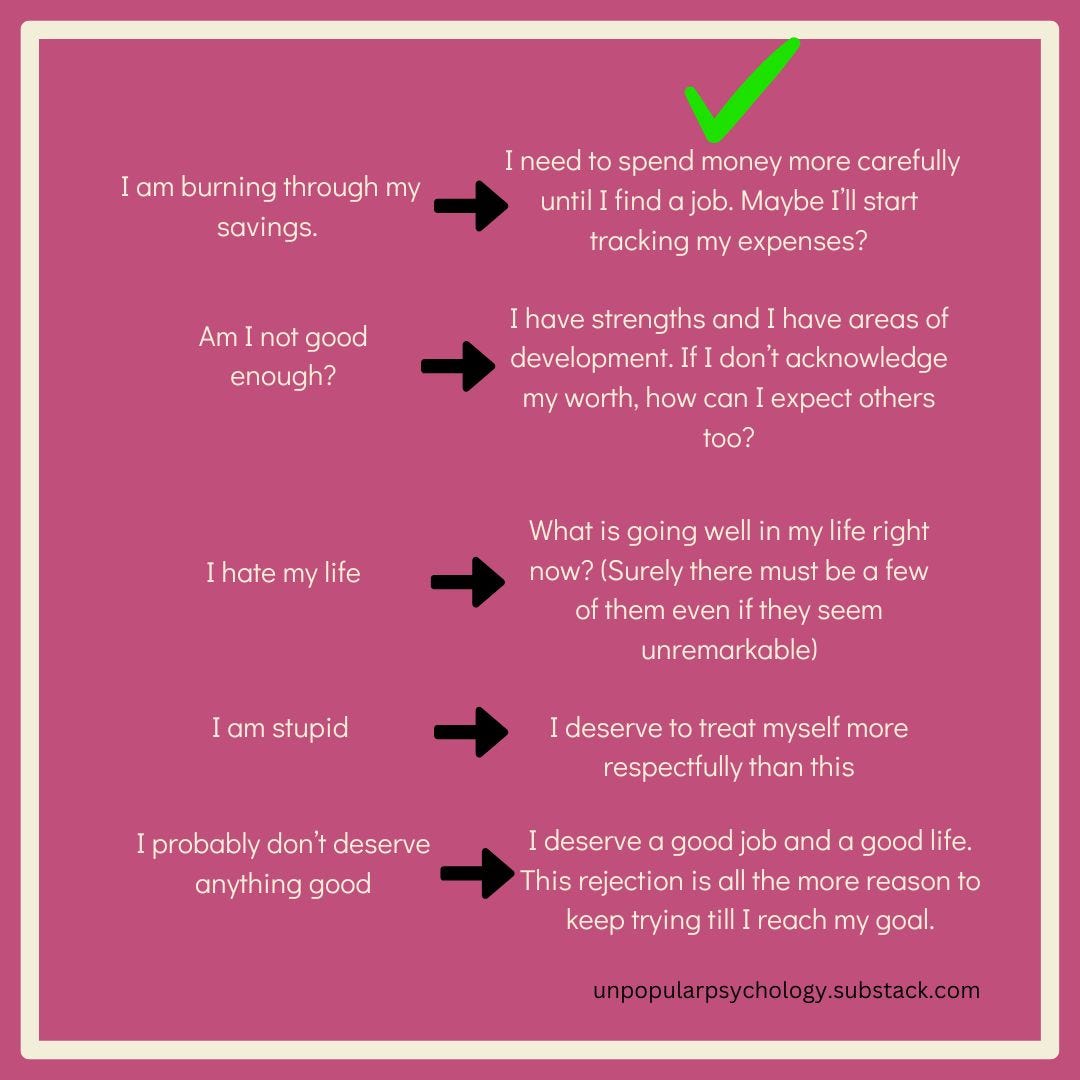What makes people angry? Actually, nowadays, what doesn’t make people angry?
For after the Age of Enlightenment came the age of Enragement. We have an assortment of issues that either touch us personally, or ones that the media and our chosen politicians have carefully handpicked, and boy do they get us all hulked up at every chance we get.
Money issues. Bad bosses. Worse drivers. Distant fathers. Controlling mothers. Unsatisfactory spouses. Inconsistent boyfriends. Demanding girlfriends. Unempathetic teachers. More money issues.
Climate change. Poor education. Terrible healthcare. Water crisis. Pollution. Undeserving billionaires. Useless activists. Children who waste food. Children who don’t have food. Judging vegans. Unapologetic meat-eaters. The political right. Communists.
We have of course devised ways to cope with the daily horror show that we think our life is. A universally popular one is venting. First things first, let’s align on the definition. What is venting?
Most dictionaries seem to align on 2 things. One - that venting is a verb. Two - that it means to engage in free expression of strong emotions. What kind of strong emotions? Usually, undesirable ones like anger, sadness, shame or guilt. I have seen people mostly vent out of anger, other things too, but mostly anger.
What makes venting so appealing is perhaps how easy it is. It is ridiculously easy to vent. All we have to do is pick that phone up and launch into a rant against whoever it is that has irked us this time - usually a boss, partner or parent. I find venting particularly convenient because you can also do it asynchronously. In my case, whenever I am upset with someone I can't express my upset to, I leave a bunch of rant-style texts to one (or more) of my close friends about the whole thing. My friends reply with sympathy as soon as they can. You get peer support without creating a great amount of dependency, this is quite unique to venting. Crying, for example, does not work the same way. You can either cry alone or cry on somebody’s shoulder. You can’t do both at the same time.
Which is why I felt sad when I learnt that venting is not as helpful as people make it out to be because how great would it have been if that was the case.
I. Pop-psych and venting
I don’t know who started the just-vent-it-out trend but my, did it catch on! I was a vent-er too. I still am, a little bit. It is tough to stop venting all of a sudden, even after you find out that it can do the opposite of what you want it to. The instinct to vent when in distress is understandable. When you are aroused and fuming, venting is exactly what you want to do. You want to talk about that vapid, insipid, obnoxious boss of yours. You want to talk about how dumb they are, and how horribly they treat everybody and how they never deserved to be a manager. You want to get back at them. When you realise that you can’t do much, you want to vent about how unfair and unjust and evil this world is. Later, you want to apologise to your friend for making them listen to your rant. You claim that you feel better, and thank them for listening. Do you feel better though? Always?
II. Venting does have some benefits
Since too many people have already talked about this and done it well, a replication attempt seems unnecessary. You can read about the positives of venting in any one of the several articles dedicated to the topic on the internet.
Here’s a 5-line summary: Discharging your feelings helps dilute their intensity. When you vent, you get some stuff out which can make you feel a little better, and lighter. You get a chance to clarify your thoughts and feel validated. It is wiser to vent to another person instead of at the direct source of your frustrations because this can have consequences (like getting fired). If the person you vent to is a responsible listener, they can even help you put things in perspective and co-regulate you upwards and forward, not let you get all riled up, all this is good for your mental health.
III. But venting (mostly) does not help you
Here’s why:
Completely externalises blame: Venting gets rid of your part in the picture. What was your role in the issue? Did you perhaps say or do something that made things worse? Was this a one-off, one-time event? Are you venting about this person to avoid confronting something else about yourself? Venting zooms in on a specific incident and makes you lose perspective.
Makes you more aggressive: Multiple studies have now shown that simply venting makes you more angry and aggressive than if you had chosen not to vent. Counter intuitively, instead of taking a load off your chest, venting actually is shown to increase stress and hostility.
Leads to more venting: We have discussed neuroplasticity in the past. Our brain prunes away the neural pathways that we don’t use and strengthens the ones that we do use. When we resort to venting every time something goes wrong, we are setting ourselves up to keep venting every time something goes wrong. This can make you prone to long-term anxiety and depression.
Does not offer any solutions: Rarely does venting lead to helpful solutions. Reason and meaning become all the more harder to see during and after a venting session. We are left feeling helpless, disempowered and angry for feeling those first 2 things.
IV. What to do instead of venting
The whole point of venting is to feel better so that you can get back to your day-to-day life. But venting usually does not help you do this, it can in fact leave you feeling more frustrated and angry. Maybe we need better tools to deal with our moments of distress than just the let-it-out mantra. One of my go-to coping strategies is the FBC-FWC tool.
FBC stands for Factors Beyond Control.
FWC stands for Factors Within Control.
The idea is to navigate through the clouds of intrusive thoughts and undesirable feelings, and separate them into 2 neat buckets - one which has stuff that you can do something about and the other which has stuff which you can’t do anything about, given the circumstances.
I’ll show you how to apply this using an example. Say, you just learnt that you have been rejected from a job that you thought you had a really good chance of getting. You had worked really hard on the application, secured good recommendation letters, you didn’t expect anything to go wrong. The rejection email has sent you spiralling down - you are angry at the company, disappointed at yourself and struggling with low self esteem. You are tired of getting rejected again and again. You are deeply frustrated, you just want to vent it all out.
Go ahead, do it. Remember to pick somebody who does not make things worse because what your friend or colleague could be doing in the name of empathy could actually be making things worse for your mental health (I have previously written about the dangers of empathy here). They think they are expressing support when in reality, they could be further intensifying your negative emotions - making you more angry, more indulgent and sorry for yourself, that kind of a venting partner is clearly not helpful. You need a mature and responsible confidante as your vent-ee.
Okay fast forward to after you have let it all out. Then what? Yes, things are looking shitty and you are feeling helpless but surely, there must be something that you can do. That is where FBC-FWC comes in. Here is what applying the tool looks like when rejected from a job:
Step 1: Write down all the thoughts that are contributing to your undesirable feelings e.g.
“I am burning through my savings. No job, no money.”
“I wish the government had better schemes for the unemployed.”
“People must be thinking I’m crazy to not have taken that other job.”
“The guys who refused me the job must really think that I am incompetent.”
“Am I not good enough?”
“I wish I had migrated to Canada when I had the chance.”
“What if I never find a job?”
“I hate my life.”
“This is only going to add to my mum’s worries.”
“I am stupid.”
“I probably don’t deserve anything good.”
Step 2: Remove all the factors that are beyond your control
“I am burning through my savings. No job, no money.”
“I wish the government had better schemes for the unemployed.”
“People must be thinking I’m crazy to not have taken that other job.”
“The guys who refused me the job must really think that I am incompetent.”
“Am I not good enough?”
“I wish I had migrated to Canada when I had the chance.”
“What if I never find a job?”
“I hate my life.”
“This is only going to add to my mum’s worries.”
“I am stupid.”
“I probably don’t deserve anything good.”
Your past, your future, what others think of you, how others take care of themselves, others’ opinions, others’ actions, the results of your efforts – these are all out of your control. Worrying about them or trying to solve for them are not only futile acts, they will only further pull you down.
Step 3: Solve for what is in your control
The reason the FBC-FWC tool is one of my favourites is because it is simple to understand and easy to apply. While you can do the exercise with a thought partner, you will be fine using the tool just by yourself too. It also propels you to action immediately which is important, for when you are caught in an undesirable mental loop, the act of doing something about your woes can help you feel significantly better than well, just venting about it.
V. Final Words
Venting is yet another concept that pop-psych continues to perpetuate with half-knowledge. Dealing with your negative feelings does not have to mean expressing it always (I have written previously about the uselessness of spending too much time processing your emotions here). If you use your venting sessions to build perspective and meaning, it can help, otherwise it will only increase your distress.
It might also help to remember that our brain feeds on what we feed it. If we resort to venting as an exclusive coping strategy, the behaviour wires our brain to put venting on repeat mode. Lashing out may help gain some quick relief but in that process, it impairs long term emotional recovery.
All this to say that don’t expect your problems to disappear as soon as you ventilate it all out. The time you spend venting out your troubles can be put to much better use by figuring out what you can do to help make things better and then actually doing them.







This was a good and helpful read. I vent a lot to people about my past issues, and I feel guilty because I feel like I put others in a bad light and impacted people with my venting. I am going to try this!
I do like a vent for sure but really like your scheme to deal with this. I will be giving this a go for sure, thank you.